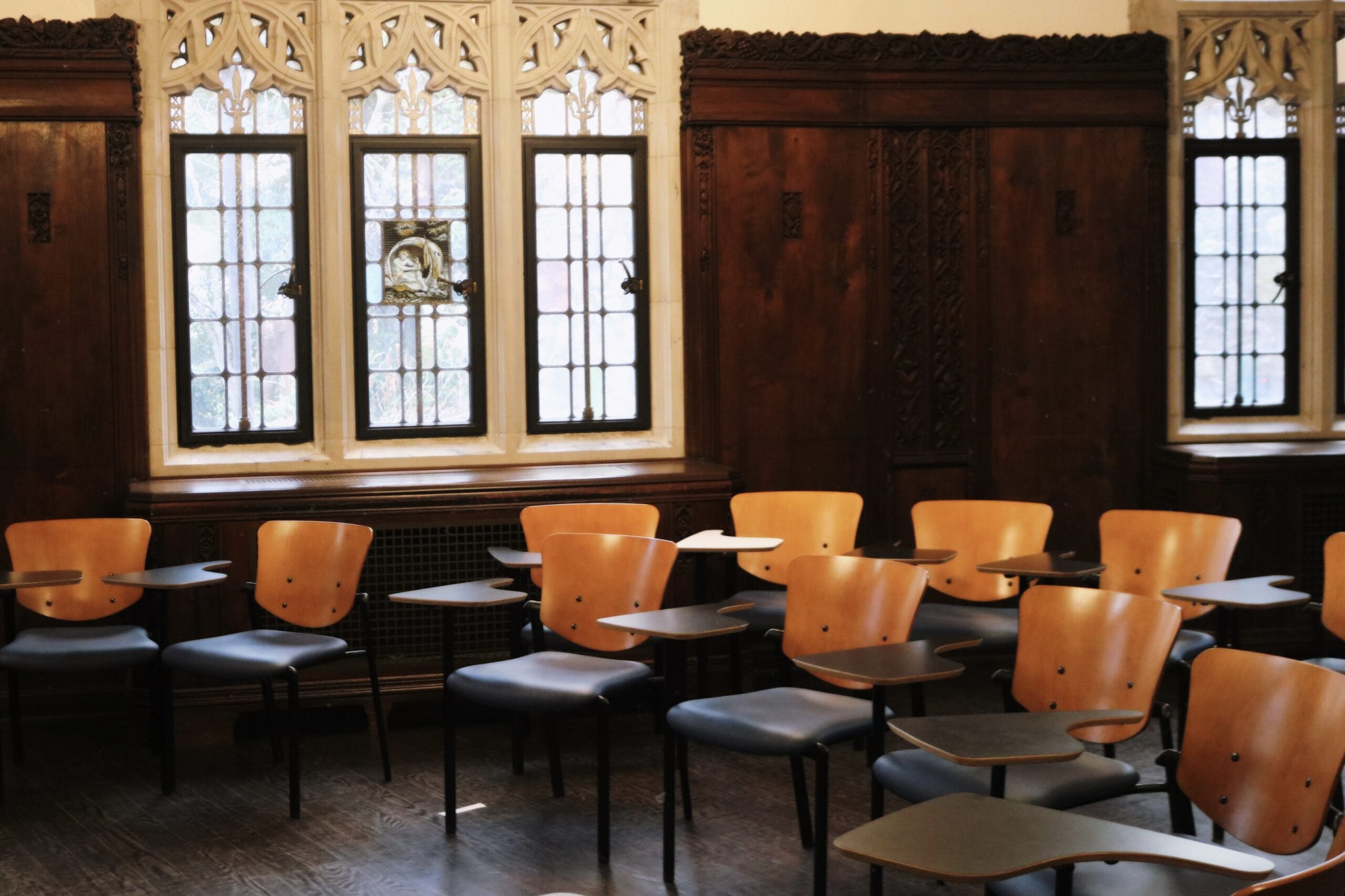As YCC elections near, students weigh in on their ideal campus leaders
The News asked 12 students what initiatives they want prioritized in the upcoming school year and what values their ideal campus leaders would embody.

Baala Shakya, Staff Photographer
With the Yale College Council election season underway, students across campus are contemplating who will best represent their interests in the coming academic year. From dining hall concerns to broader issues of academic freedom and governance, many students are calling for a more engaged and proactive YCC leadership.
Last Monday, the YCC announced that each residential college’s two Senate seats are open for election. These representatives work to push policies pertaining to topics such as academics, accessibility, financial aid and sustainability. Each officer position is also up for grabs, including the offices of the council president, vice president, events director, sophomore class council president and junior class council president.
With the planning period underway, candidates are currently assembling campaign teams and refining their platforms, as many students on campus begin to contemplate who their votes will go to.
The News spoke with 12 students about what initiatives they want prioritized in the upcoming school year and what values their ideal campus leaders would embody.
Advocating for policy changes
Yurim Jin ’28 highlighted the need for greater student input in dining hall policies. Undra Pillows ’28 echoed this, emphasizing the importance of student advocacy in decision-making processes.
Housing concerns remain a recurring issue as well. Paige Adekplor ’25, who will be voting in her fourth YCC election cycle, believes the Council has focused too much on superficial campus enhancements rather than substantive issues. Having seen new students take on roles of leadership, she believes that regardless of what new faces are introduced to the Council, little on campus will change.
“I feel like the YCC focuses on a lot of superficial things that, of course, make the college experience better aesthetically, but not better for the functionality of the students,” Adekplor said. “Rather than having study breaks with Insomnia Cookies or having little pop-ups or dance after dance, formal after formal, I’m hoping that, in the future, for your sake, that they actually take a step back and focus on the root issues of this University within their scope.”
Issues she hopes to see addressed next year, after she graduates, are ensuring dining hall accessibility, adequate responses to mental health crises and consistent checking of campus water filtration systems.
Other students have also called for improved transparency in areas such as student health services. Jack Ludwick ’28 pointed to difficulties in accessing Yale Health, stating that students often seek external medical care due to bureaucratic hurdles.
Sabrina Guo ’27 also stressed the need for greater collaboration between YCC, Student Accessibility Services and student-led health and disability rights organizations.
“I’d love to see YCC prioritize accessibility across campus,” Guo said. “Yale is a vibrant, diverse community, but there’s always more we can do to ensure every student feels welcomed and at home.”
The need for effective and transparent leadership
Guo also emphasized the importance of fostering spaces for open, respectful dialogue across political divides.
“It is important that our representatives are able to speak for the larger student body they serve through their time and experiences at Yale,” Ludwick said. “An ideal YCC candidate should be present within and across the Yale community… someone who is able to devote time to an array of different activities, causes and engagements to help truly bring the Yale community together.”
Bryant Pranbookpluk ’28 echoed the sentiment, expressing hope that YCC senators represent “different perspectives within a class.”
Students also emphasized the need for YCC officials to clearly communicate their powers and limitations. Miles Kirkpatrick ’27 believes that the YCC presidency and vice presidency are “full-time jobs” that demand full commitment.
Echoing Kirkpatrick’s sentiment, Alexander Diricio ’28 said his involvement in the election may be limited to the lack of knowledge and personal engagement council officials and senators have with their constituents.
“I have no idea what the YCC senator or president does,” Diricio said. “I know the YCC sends emails every week informing us of different things going on around campus and things to sign up for, but I’m not really aware of anything. I can’t lie, I don’t know what they’re able to do or how much power they have.”
Similarly, Zach Pan ’27 stressed the need for a YCC leader who is both “passionate and pragmatic.”
“I think people are tired of business as usual, but we also need an effective YCC,” Pan said.
Broader institutional concerns
For some students, YCC’s role extends beyond campus affairs. William Trinh ’28 wants the Council to take a stronger stance against external pressures that threaten academic freedom at Yale.
“I would like to see candidates take steps that fortify our campus from federal interference, whether it be more steps to limit non-Yale law enforcement from being on campus, a forceful pushback to actions taken by the current administration, a recommitment to protecting faculty from undue interference [or] a condemnation of institutional neutrality,” Trinh said.
Zachary Clifton ’28 shared a similar perspective, arguing that YCC leaders must consider their roles beyond day-to-day campus management — not merely as representatives of students, but as “participants in the larger life of the university, co-responsible for the preservation and renewal of its meaning.”
The Yale College Council was founded in 1972.







